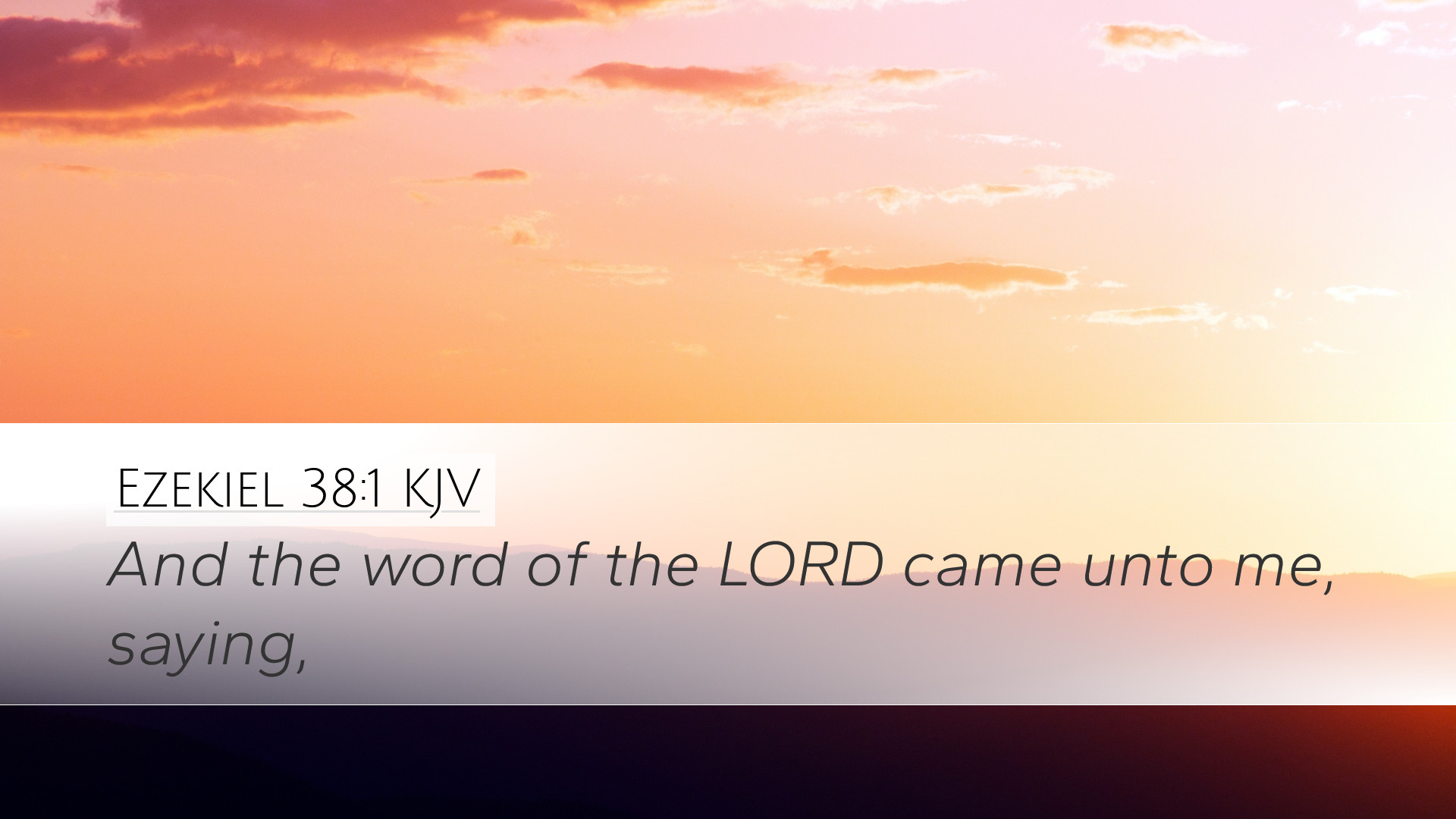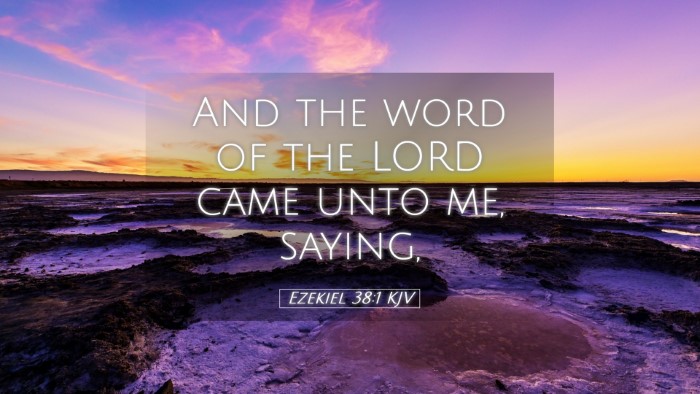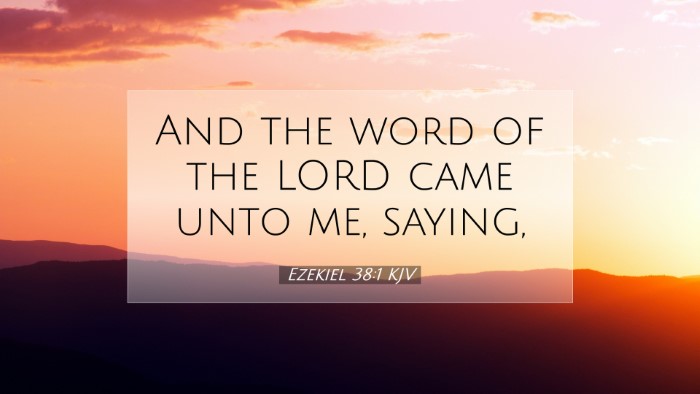Commentary on Ezekiel 38:1
Ezekiel 38:1 (NKJV): "Now the word of the Lord came to me, saying."
Introduction
The prophetic declarations in Ezekiel 38 mark a significant shift in the thematic narrative of the Book of Ezekiel. This chapter introduces a profound prophetic vision concerning the latter days, centering on Gog, the leader of Magog. This commentary synthesizes insights from multiple public domain scholars to illuminate the depth and implications of this verse.
Contextual Background
Ezekiel, a prophet during the Babylonian exile, addresses the sins of Israel but also prophesies their eventual restoration and redemption. The context surrounding Ezekiel 38 is vital for understanding the enormity of the prophecies that follow. The prophetic utterance in verse 1 serves as an introduction to a dramatic eschatological vision.
Insights from Commentaries
Matthew Henry
Matthew Henry highlights the immediacy and authority of the word of the Lord as it comes to the prophet. He stresses God's active communication with His people through prophets. This notion emphasizes the importance of divine revelation in guiding both the prophet and the audience in understanding their circumstances and God’s future plans.
Albert Barnes
Albert Barnes elaborates on the significance of the identity of Gog and the geographical references in the following verses. He notes that "the word of the Lord came" signifies God's direct communication, underscoring a relationship based on revelation. This phrase sets the tone for the ensuing prophetic discourse, indicating that what follows is rooted in divine authority and purpose.
Adam Clarke
Adam Clarke emphasizes the prophetic nature of these messages and the role Ezekiel serves as God's messenger. Clarke points out that the announcement of this message underscores the transition from Israel's condemnation for sin to their promised restoration and the broader implications for the nations surrounding Israel. The phrase indicates a pivotal moment where God reveals His plans not only for Israel but for the entirety of the nations involved in future global alliances and conflicts.
Theological Implications
The phrase "the word of the Lord came to me" enriches the understanding of prophetic literature. It affirms the belief that God actively speaks, revealing His intentions to humanity. This engagement not only affirms God’s sovereignty but also sheds light on the hope of restoration and divine intervention in history.
Divine Revelation
One of the primary functions of prophecy is to reveal God's will. Both Henry and Barnes note the authoritative nature of divine pronouncements, which serves to awaken the ears of both the listener and the reader to the gravity of future events.
Eschatological Focus
This chapter, and indeed the verses that follow, has been widely interpreted as having eschatological significance. The prophecy concerning Gog is often viewed within the framework of end-time events, where nations gather against Israel—a recurring theme in biblical prophecy.
God’s Sovereignty Over Nations
The declaration in Ezekiel 38:1 also emphasizes that God has authority over the nations. The ensuing prophecy elaborates on how God will ultimately intervene in human history, demonstrating that no power can thwart His divine plan. This is bolstered by Clarke's observation about God’s intention for the final redemption of Israel and judgment upon its enemies.
Practical Applications for Today
For pastors, students, and theologians, Ezekiel 38:1 serves as a reminder of the necessity of listening to God’s word. It calls for a response and an understanding of our current times in light of divine revelation.
- The Importance of Prophetic Listening: Just as Ezekiel received the word from God, believers today are encouraged to cultivate a relationship where they seek and listen to God's revelations through prayer and scripture.
- Understanding Global Events: The relevance of this prophecy extends to modern geopolitics; faithful interpretations engage believers in the discourse regarding Israel’s place in the world and God’s promises to His people.
- The Hope of Restoration: At a spiritual level, the entire prophetic narrative is a testament to God’s fidelity to His covenant. There is a promise of restoration for those who have strayed, reinforcing the importance of spiritual renewal.
Conclusion
Ezekiel 38:1 serves as a gateway to some of the most profound prophecies concerning the end times and the fate of nations. Through the insights of Henry, Barnes, and Clarke, we grasp both the immediate significance of the prophetic word in Ezekiel’s time and its lasting implications for the faithful today. As we engage with this text, may we be reminded of God’s sovereignty, the power of His revelation, and the hopeful assurance of His ultimate purpose in history.


